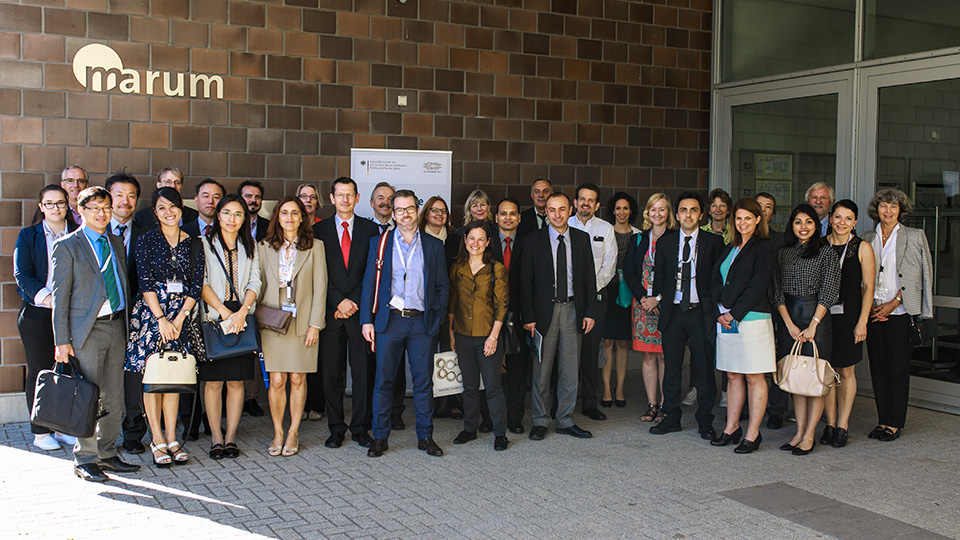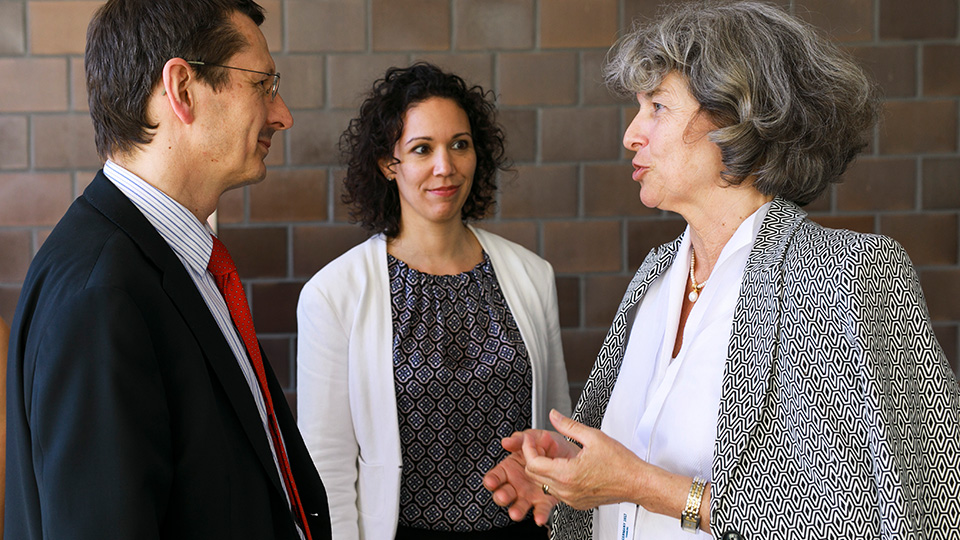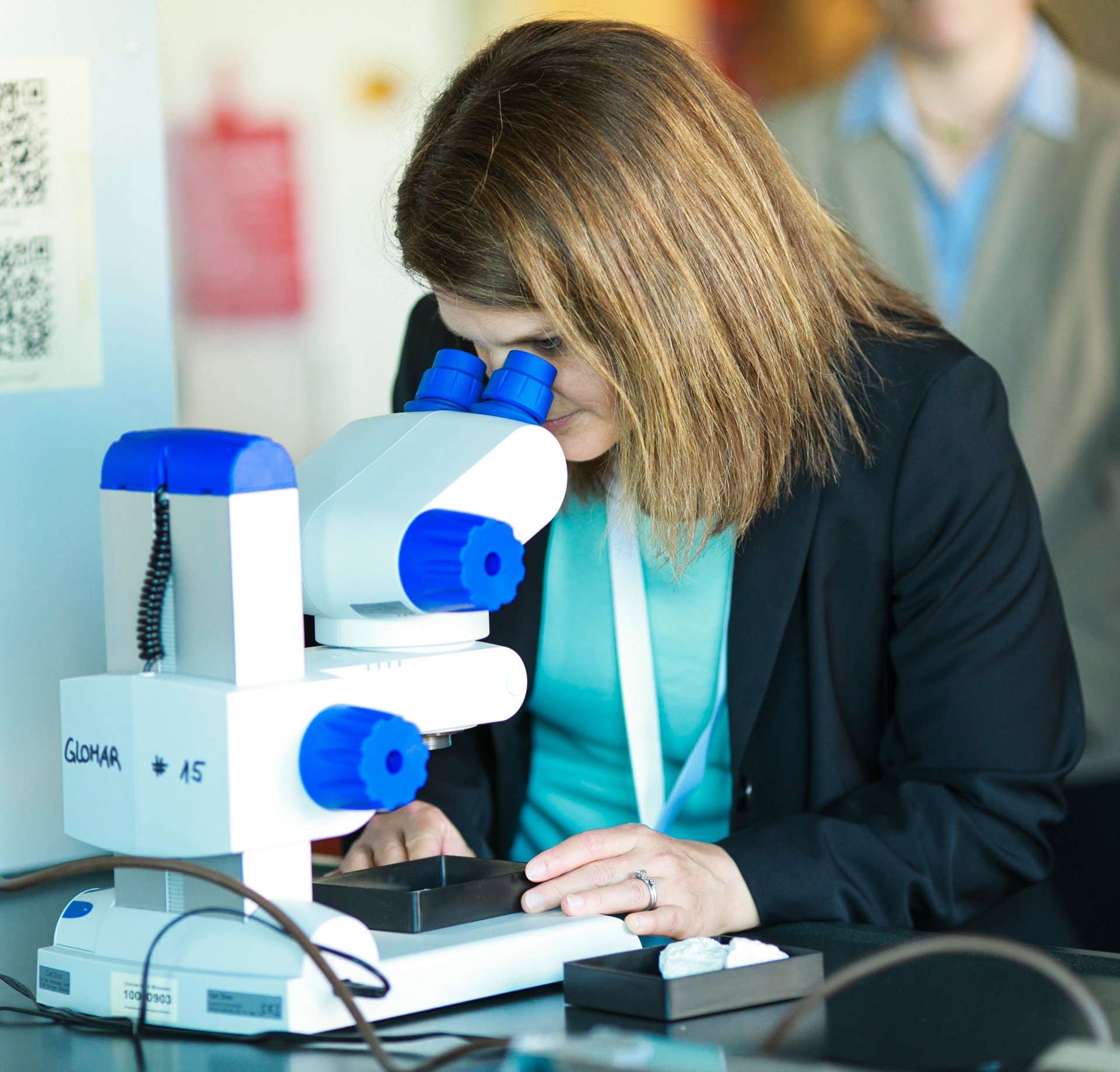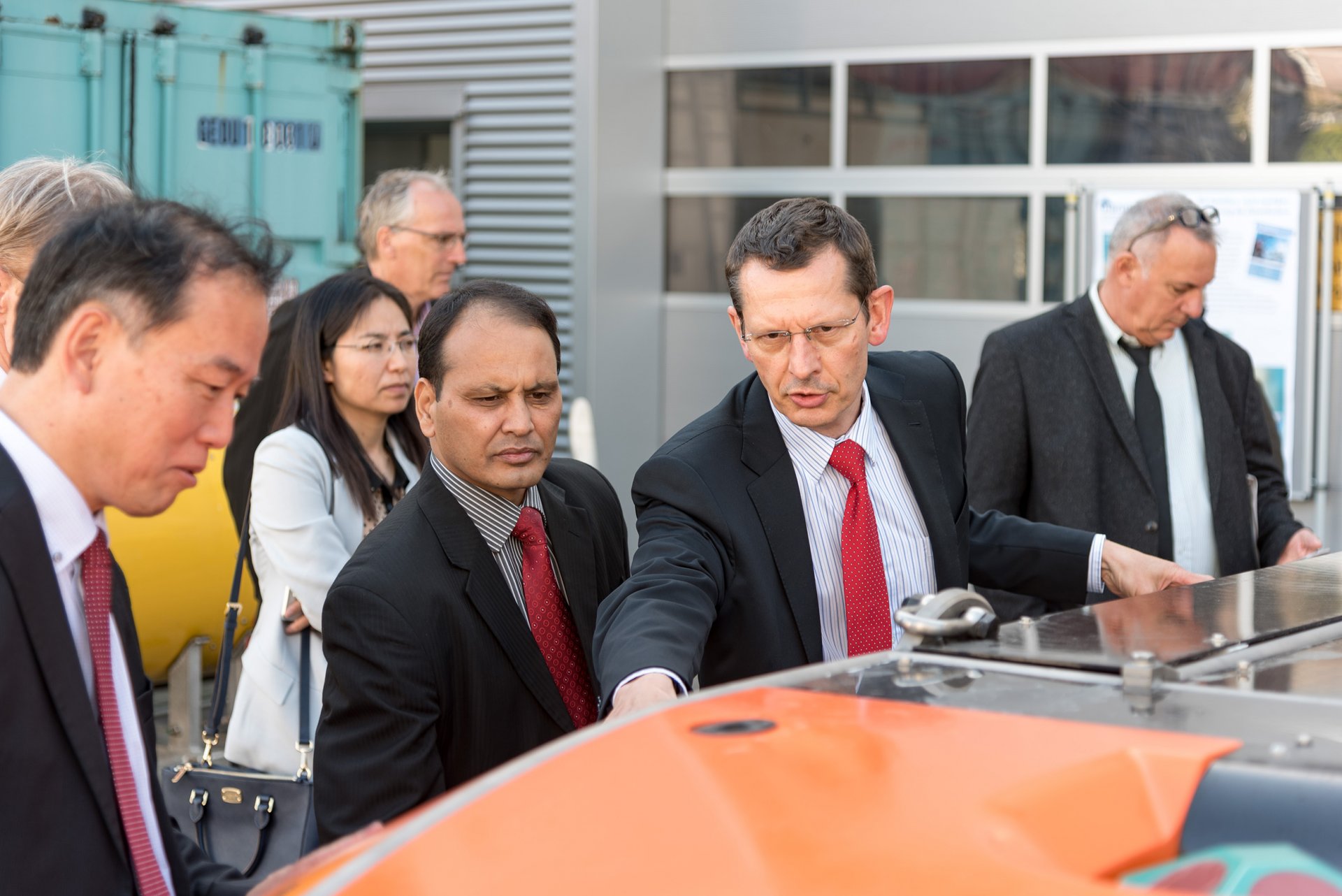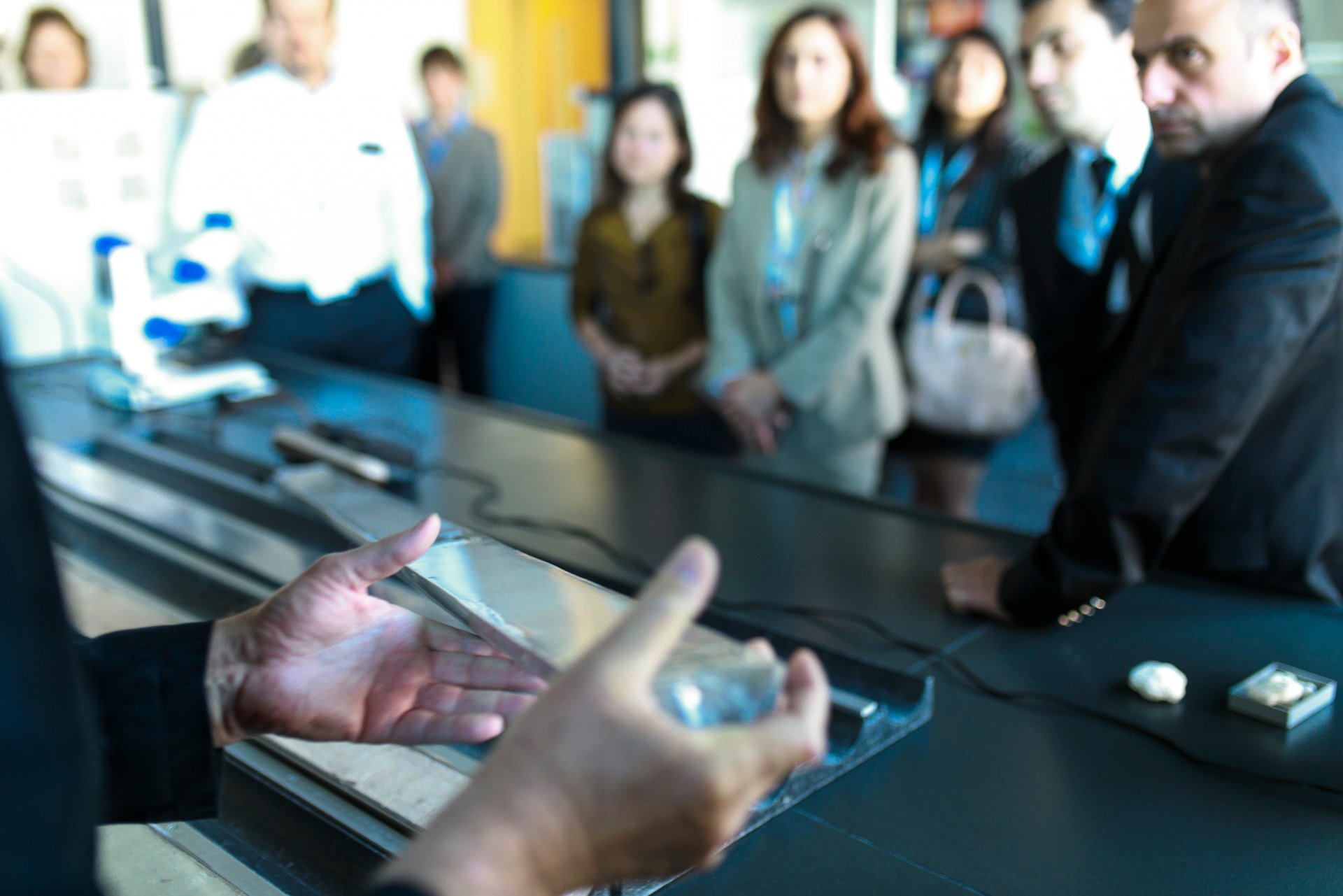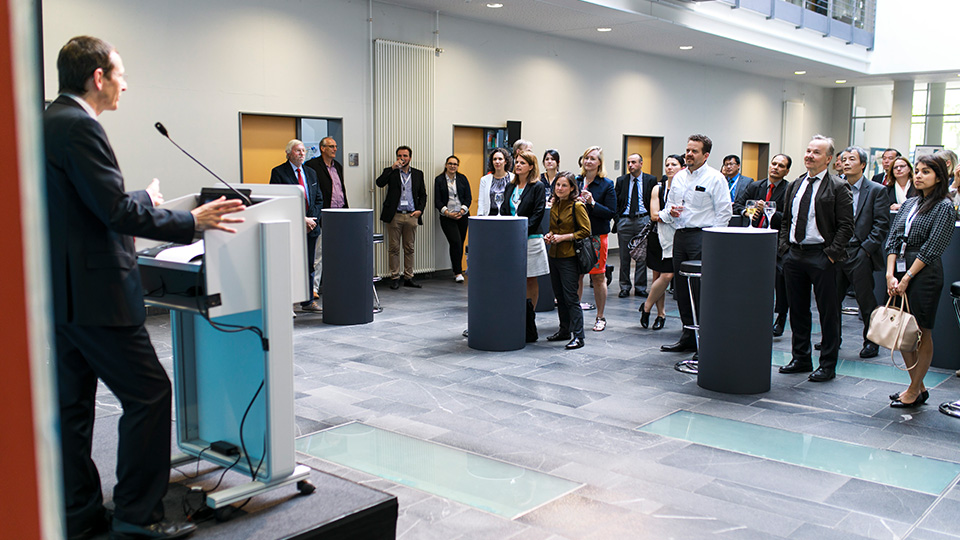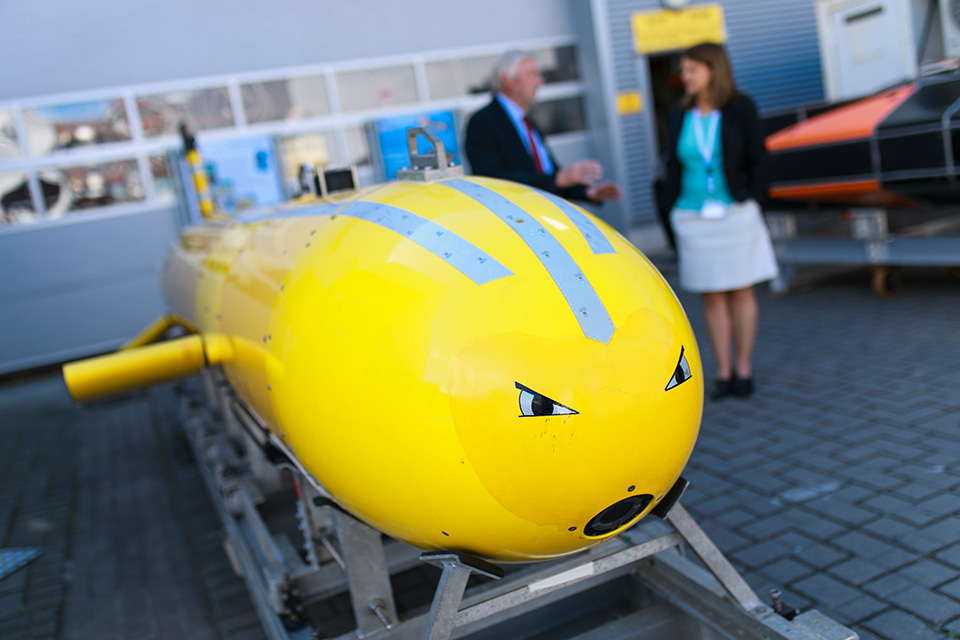- Home
- Discover
- Media Releases
- Media Releases 2017
- G20-Delegates visit MARUM
G20-Delegates visit MARUM
The delegates to this high-level conference obtained insights into the fundamentals of marine research during a visit to MARUM, the Center for Marine Environmental Sciences at the University of Bremen. Here they experienced “science to reach out and touch,” as described by Dr. Judith Neumann of the BMUB (Federal Ministry for the Environment, Nature Conservation, Building and Nuclear Safety), who specializes in marine conservation.
In his introductory remarks, Prof. Dr. Michael Schulz, Director of MARUM explained that “New technologies facilitate new discoveries.” MARUM is one of only a few institutes where the staff apply with these technologies and constantly improve them. They are crucial for exploring the mysteries of the deep sea and for identifying ecosystems there that need protection. These technologies include the submersible vehicles MARUM-QUEST, MARUM-SEAL, and MARUM-SQUID with their high-resolution cameras that are essential for discovering new ecosystems. The sea-floor drilling rig MARUM-MEBO is used to retrieve sediment and rock cores that are used by scientists to investigate climate history, the deep biosphere, and geohazards such as earthquakes and tsunamis. According to Schulz, all of this would not be possible without international cooperation.
During a tour of this research center of the University of Bremen, the participants, representatives from the government, science, industry, and non-governmental organizations learned, for example, how challenging the deployment of the MARUM-MEBO is, and to appreciate what a delicate touch is needed by the submersible vehicle pilots to guide the “arms and eyes” of science in the deep sea.
G20 background:
On December 1, 2016 Germany assumed the G20 presidency. G20 is the central forum for international cooperation in financial and economic questions, with membership comprising 19 leading industrial and emerging nations as well as the European Union. The members represent almost two-thirds of the world population, over four-fifths of the worldwide gross domestic product and three-fourths of world trade. The heads of state and government meet in Hamburg on July 7 and 8, 2017.
Weitere Informationen:
Ulrike Prange
Presse- und Öffentlichkeitsarbeit
E-Mail: [Bitte aktivieren Sie Javascript]



